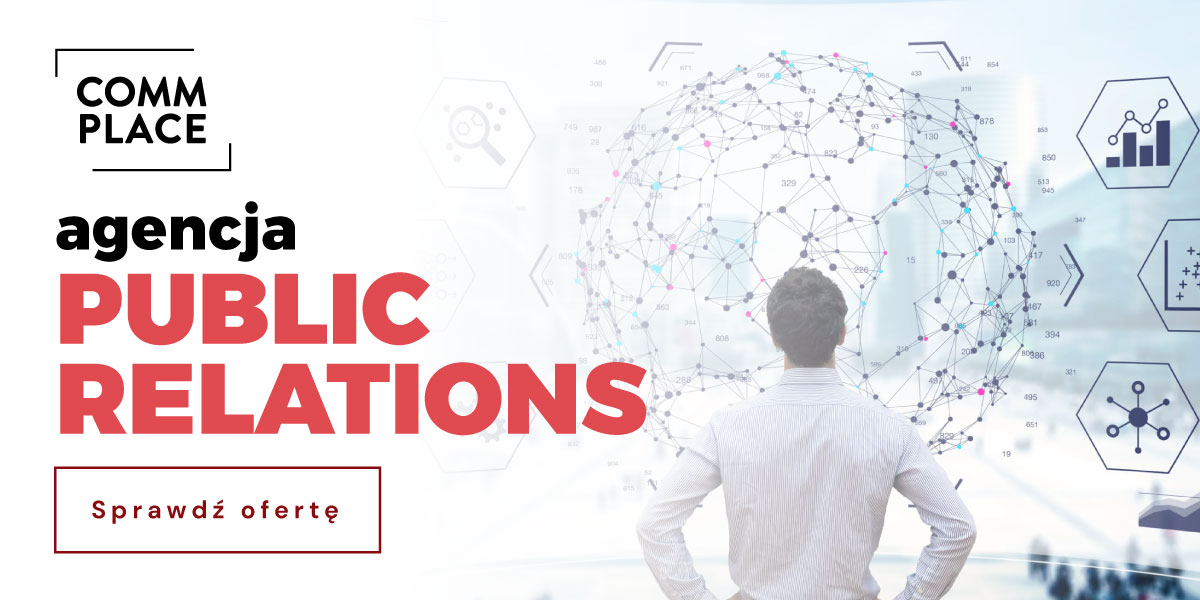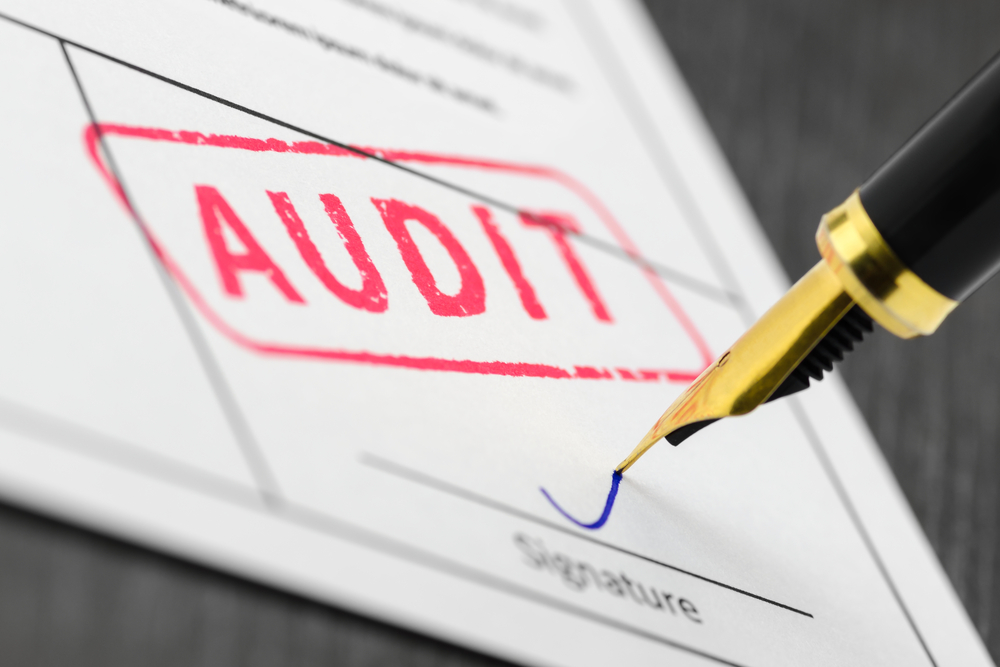PR tools are something teenage bloggers already use today. The list of basic tools in the area of public relations is constantly growing, because the traditional ones are joined by those used in other Internet spaces. Below is a short guide to those without whom it is difficult to imagine the functioning of the company.
What will you learn from the article?
In today's dynamically changing world of media and communication, the effective use of PR tools is becoming crucial to building and maintaining a positive brand image. This entry was created to introduce the reader to the world of public relations, defining PR tools as well as presenting how they are used in practice. You will learn about the differences between external and internal PR, find out what PR tools work best and how they can be used effectively to build a strong and recognizable brand. In addition, we will discuss popular PR tools from a technical perspective, allowing you to understand how strategic planning and proper implementation can transform your brand's presence in the market. You will also discover how key PR tools can be used to achieve communication and image goals in every aspect of business.
The basic PR tools have remained unchanged for years, although their form has changed. E-mail has replaced letters, a blog is the equivalent of a newspaper editorial, etc.). The Internet has democratized the PR industry and made certain activities easier to perform on your own. It facilitated contacts with journalists and opened access first to the world of bloggers and later influencers. They, in turn, are more and more willing to cooperate with brands and undertake various activities PR activities. On the other hand, several dozen press releases come to the editorial office, and even portals and blogs every day. You need to use more than just basic PR tools to stand out.
PR tools - definition
Currently, managers try to use various PR tools in their activities. The definitions of this term focus on the techniques and instruments thanks to which the company builds its image and maintains contact with the public. They can be divided primarily into internal, i.e. employee-oriented and external - generally oriented company environment (i.e. consumers, suppliers, governmental and non-governmental institutions, stakeholders, etc.) various PR tools.
The definitions emphasize that it is worth using several instruments at once, but those that will be tailored to our target group. In order to build awareness of your brand and build positive relationships with the environment, you cannot choose tools blindly - combining them with our marketing strategy will bring the expected results. Think carefully about the image you want to create, what your values are, how you want to be perceived by consumers - these and many other questions related to the process of creating a brand image will allow you to adjust PR tools to your public relations activities.
How to do PR?
Let's start with what is most important in the work of a PR specialist. It is about cooperation with the media, which can take various forms. These can be sponsored trips and events, but also regular press releases, interviews or conferences. Lobbying is also a form of advanced PR, i.e. influencing public opinion using subtle tools and informal contacts.
It is important too crisis management. Often, it is up to the right reaction in a difficult moment whether the situation escalates and becomes even less favorable or becomes calmer. Sometimes appropriate PR tools in crisis they allow you to turn a difficult event into an advantageous one. This year's example proves that crisis management is not worth ignoring. Many industries had to respond quickly and specifically to situations that could not be predicted.

What tools does external PR offer?
External public relations are activities aimed at the environment in which the company operates. Its goal is to achieve harmony in contacts with the community - i.e. with potential and current customers, business partners, investors and the media. The goal of external PR is to create a solid reputation for the company and maintain it at a high level.
Appropriate tools are necessary for effective dialogue with the environment. PR tools must be tailored to the recipients as much as possible and to the specific goal of public relations - the goal may be to change or strengthen the image, the desire to increase interest among recipients, or more effective management of information flow.
A popular PR tool is media relations, i.e. efficient communication between the company and the media. The goal is to create and maintain positive relationships with journalists and other media representatives. Media relations can be realized by preparing press releases, organizing press conferences or giving interviews.
Is it possible to use PR in employer branding?
Of course! The second tool for conducting external PR activities is employer branding. It is about building a positive image of the employer by creating reliable, distinctive job advertisements, participating in job fairs, offering favorable employment conditions and attractive benefits, and conducting recruitment processes on clear, transparent principles.
Favorable external employer branding increases the chance of employing highly qualified, experienced people (talents) who can significantly contribute to the development of the company.

Influencer marketing is another PR tool. Cooperation with Internet creators allows you to reach a wide audience, and thus contributes to increasing sales or building brand popularity. What's more, it is a great way to improve the company's image - creating a brand that is more friendly, "human", one that wants to be closer to its recipients.
Other tools used in the field of external public relations include:
- expert positioning - expert positioning, i.e. using the potential of an expert who becomes the company's ambassador and represents it outside (a way to gain consumer confidence),
- event marketing - organization of sales events (e.g. the premiere of a new product), image events (e.g. charity events) or educational events (e.g. educational conferences),
- investors relations - investor relations, i.e. the company's communication with investors, brokers, trade press, etc.
Which PR tools work best?
There is no universal recipe. We will select the best solution for you.
What tools does internal PR use?
PR activities should be carried out not only outside but also inside the organization. Internal PR is focused on employees. Internal PR tools do not focus on promotion (as in the case of external PR), but on building effective communication and creating positive relationships between employees. Effective communication is a solid pillar of every enterprise. If not carried out properly, it may cause misunderstandings between employees or between the company and the employee. Skillfully selected and properly used internal PR tools can improve the functioning of the company and facilitate the achievement of set business goals.
What internal PR tool do we distinguish?
- Employee mailings that enable quick contact with employees. The advantage is the possibility of personalizing the messages.
- Information meetings, i.e. an effective form of direct contact. It is a great way to build strong, positive relationships. Meetings can be held on a regular or occasional basis - only when needed. Their advantage is the opportunity to learn the opinions of individual employees about the activities undertaken by the company. It is also a great opportunity to discuss your current issues.
- Company events, e.g. in the form of integration. Their main advantage is the chance to improve communication in the company - especially between employees. Events bring employees closer together and enable building a strong, well-coordinated team.
- Internal employer brandingwhose aim is to create the image of the company as a friendly workplace. Employer branding is all the factors that make working in the company better - e.g. a positive, friendly atmosphere, mutual respect, work-life balance. As part of EB, the company can offer employees favorable terms of cooperation, attractive benefits, development opportunities (training, etc.).
- Other: company podcast, company social media channels, bulletin boards, internal newsletters and newspapers, contests.

PR in practice – what does strategy planning look like?
PR is activities aimed at creating and maintaining positive relations between the organization and its environment. Activities must be conscious, planned and carried out in a consistent, well-thought-out manner. Why? Because PR without a strategy is like a ship without a helmsman - you go where the waves take you, without any goal. Will such actions bring results? Certainly not what we would expect.
The PR strategy supports the achievement of business goals. It allows you to avoid wasting time, blindly following trends, and wasting resources on ineffective activities. A decent strategy is an investment in the future - in the development of the brand that will lead it to success.
PR strategy is a marathon, not a sprint
Preparing a PR strategy takes time and commitment. The process should be preceded by an in-depth analysis of the situation - where is the company located, what surrounds it, etc. Detailed research may include a SWOT analysis that will allow you to determine:
- strengths - how good is the company's current reputation,
- weaknesses - weak points of the company,
- opportunities - what are the new opportunities, does the competition have any weaknesses,
- external and internal threats - e.g. actions of competitors that may have a negative impact on the company.

Set a goal at the beginning of planning your strategy. The main goals of PR are building the company's reputation and maintaining positive relations inside and outside the organization. It is worth setting side goals - e.g. promoting specific products, building support for introducing a new product to the market, improving the image. The goals must be in line with the SMART principle, i.e. specific, measurable, achievable, relevant, defined in time.
The next step is to define the target groups in detail, taking into account the motives of actions of representatives of individual groups, their value systems, emotions that guide them in their choices, communication channelsthey use. Defining the recipients will enable the selection of appropriate PR tools.
After identifying the target groups, the focus should be on creating the message on which the entire PR action plan will be based. The message should define how we present the company, how we distinguish it from the competition, what to identify it with, what values we intend to follow.
How much does a PR strategy cost?
Budgeting plays a key role in creating the strategy. A strictly defined budget will allow you to establish specific, realistic activities and tools. The tools must fit the chosen goal and target groups, as well as fit into the character and vision of the company.
The last step is to prepare your strategy schedule. Embedding individual tasks in time allows you to accurately organize your work. Thanks to this, we will not omit any area of PR activities.
At each stage of the implementation of PR activities, the effects should be monitored and the strategy modified if necessary.
PR tools - how to use them to build a brand image?
Today, PR tools are more than just press releases. They also appear overt and covert activities in social mediawhich are to build the brand image. Some, apart from the services of a traditional press spokesman, also choose an e-Ombudsman, who responds to comments on the Internet.
Do you know what effective public relations is or how to use public relations tools to achieve your goals? If you have little experience or resources, it is worth starting modestly, to the best of your abilities. For example, you can establish several lasting relationships with selected bloggers or start with a newsletter.
It is also worth checking what tools public relations has in its arsenal of means of competition influence, not to be left behind.

Publications are also simple public relations instruments that have a great impact on the brand's image. Whether they are beautifully published catalogs or information leaflets, they can serve as information, advertising and PR functions at the same time. Today, unusual PR activities include, for example, participating as a guest or expert in a podcast or on a YouTube channel.
Which public relations tools to choose?
Simple PR tools are sometimes the most effective. On your website, it is worth placing an e-mail address intended only for the media and delegating someone who will be responsible for checking this inbox. The point is to all contacts with the media former in one placeand also so that no query can be missed.
It is also worth considering PR tools when planning online activities, such as on-line marketing. Before launching a new service or product, it is good to have a ready press kit, i.e. a set of basic information for the press. Even if they are rarely used, they will allow for more bold contacts with the media or investors - in case of an inquiry, all you need to do is send back the previously prepared set of information.
Popular PR tools from the technical side
Contrary to what it may seem, the basic tools of a PR specialist are not very technically advanced. It's still a phone, an e-mail box and a notebook with contacts (today it's probably more of a Google calendar). Tools for monitoring brand mentions online may be useful for this purpose. There are more advanced paid variants, but to start with, it may be enough to set an alert in Google News - when a new result with your company's name appears, you will receive a notification.
Why is it worth conducting analyzes in public relations?
Basic reputation monitoring can also be useful keyword analysis tools. Their main job is SEO optimization, and therefore positioning of pages, but you can also draw conclusions based on the results about social trends or opinions circulating about you on the Internet. The basic tool is Google Analytics, but there are many more accurate ones, such as Senuto or Semstorm.

Entering the names of competing companies in the search engine is an interesting and very simple exercise that checks your PR against the background of the competition. Analyze the first results, the connotations in which the name of the company appears (positive or negative?) And also Google Adsthat appear with these results. Then compare them with what is in the search engine about your business.
Which public relations instruments are worth knowing?
Some PR tools are worth knowing, even if you do not plan to cooperate with such an entity as public relations agency. You can try to establish basic contacts with bloggers or the media on your own. Especially in the local market it's easy enter into sponsorship with a sports team or a famous person. It's worth it too build a database of contacts to the media and newsletter and use these later communication channels to tell a story about a company that puts it in a favorable light. PR tools also include your own publications as well branding marki. If you appear in the media from time to time, or even on the YouTube channel, you also conduct PR communication for your person and company.

